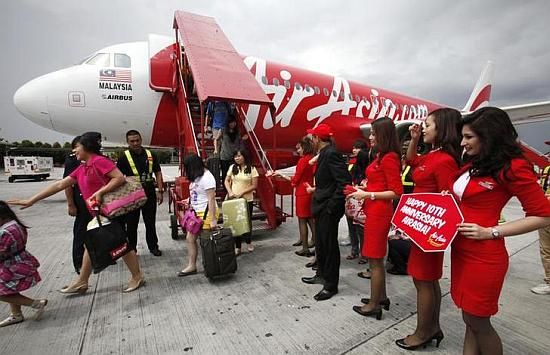At present domestic airlines are not allowed to fly on international routes until they have 20 aircraft in fleet and have completed five years of operations.
 Established domestic airlines have come out against the aviation ministry's move to replace the 5/20 rule on international operations with a credit-based policy that would allow new airlines to fly foreign routes within a year of domestic operations.
Established domestic airlines have come out against the aviation ministry's move to replace the 5/20 rule on international operations with a credit-based policy that would allow new airlines to fly foreign routes within a year of domestic operations.
At present, domestic airlines are not allowed to fly on international routes until they have 20 aircraft in their fleet and have completed five years of operations.
The aviation ministry now wants to amend this “protectionist” policy. While a change in rules will benefit new airlines such as Air Asia and Vistara, established carriers under the banner of Federation of Indian Airlines (FIA) are opposing the plan.
According to FIA members, who include all private airlines (excluding AirAsia and Vistara), the relaxation in rules is for the benefit of new airlines and it is unfair to older airlines. FIA members also feel it is wrong to club route-dispersal guidelines with international flying norms.
The draft of the proposed policy, which was shared with airlines earlier this month, links the relaxation of rules for international operations with a policy on mandatory operations on regional and remote routes. The latter is known as route-dispersal guidelines and lays down capacity deployment norms for domestic airlines.
Domestic carriers will get flying credits based on the capacity deployment on metro routes, regional routes, routes in the North-East, Lakshadweep, Jammu & Kashmir and unused airports. Flying on regional and under-connected routes such as those to the North-East and unused airports will earn an airline thrice or five times more credits than operation on metro routes.
Under the proposed policy, an airline will need two billion domestic flying credits (DFCs), five aircraft and accident-free, one-year record to become eligible for international flying. According to the civil aviation ministry, it will be possible for airlines to secure two billion DFCs in a year.
FIA members also feel it is wrong to club route-dispersal guidelines with international flying norms.
“All the older airlines have flown for five years and are eligible for international flying even otherwise. Older airlines do not require credits to fly abroad. We feel that under the proposed norms, the idea of connecting remote and regional routes gets diluted. New airlines will deploy maximum capacity on metro routes or lucrative routes to earn flying credits, instead of unviable regional routes,” said an airline executive said.










